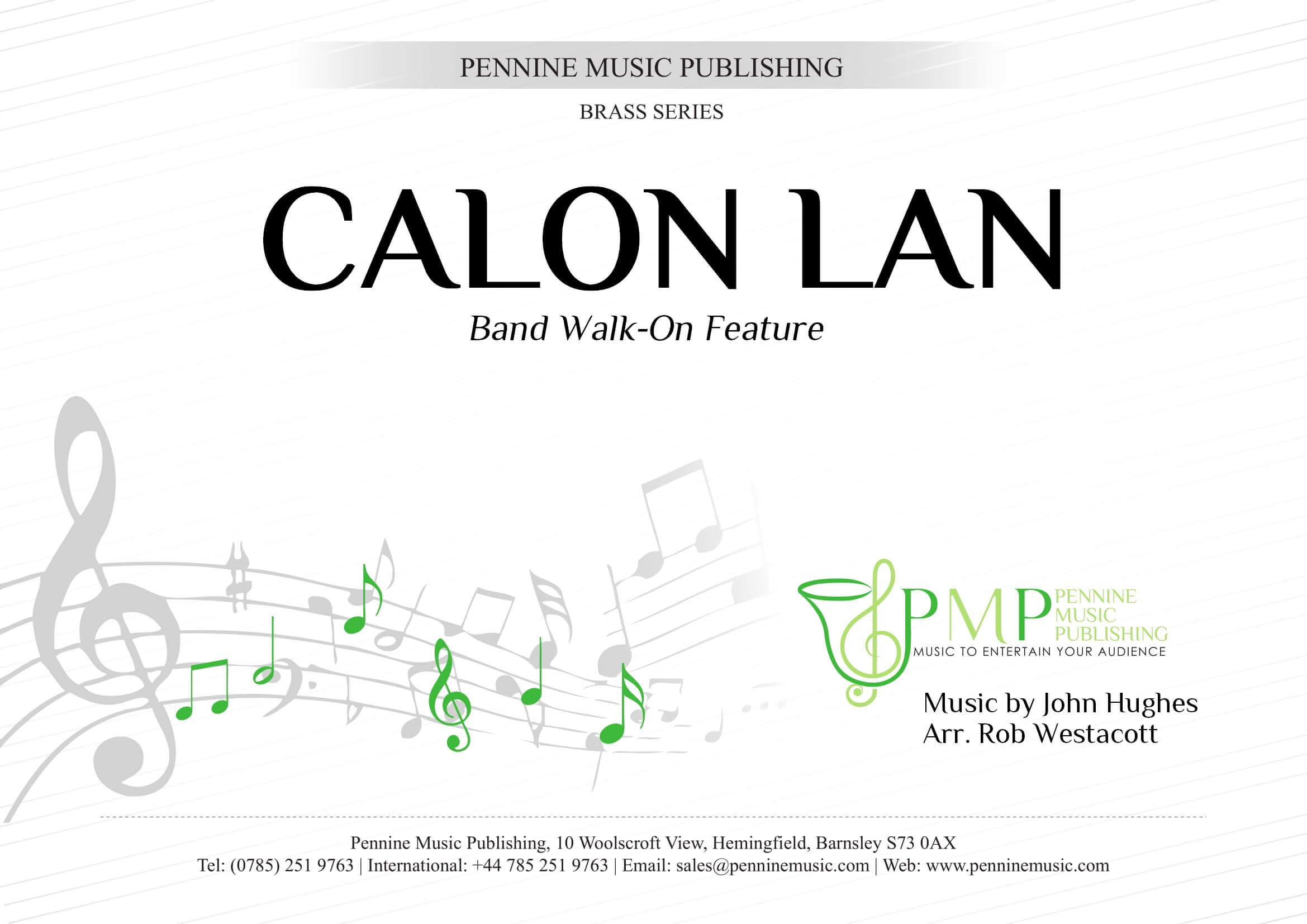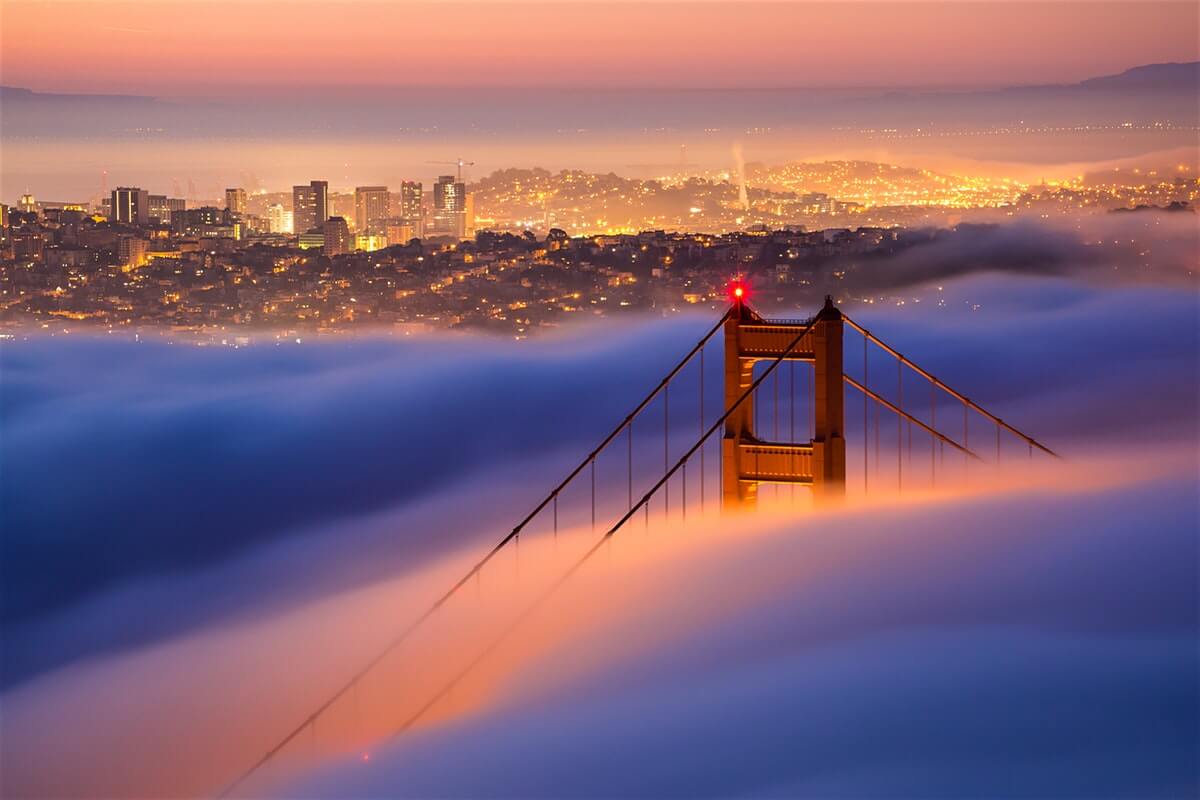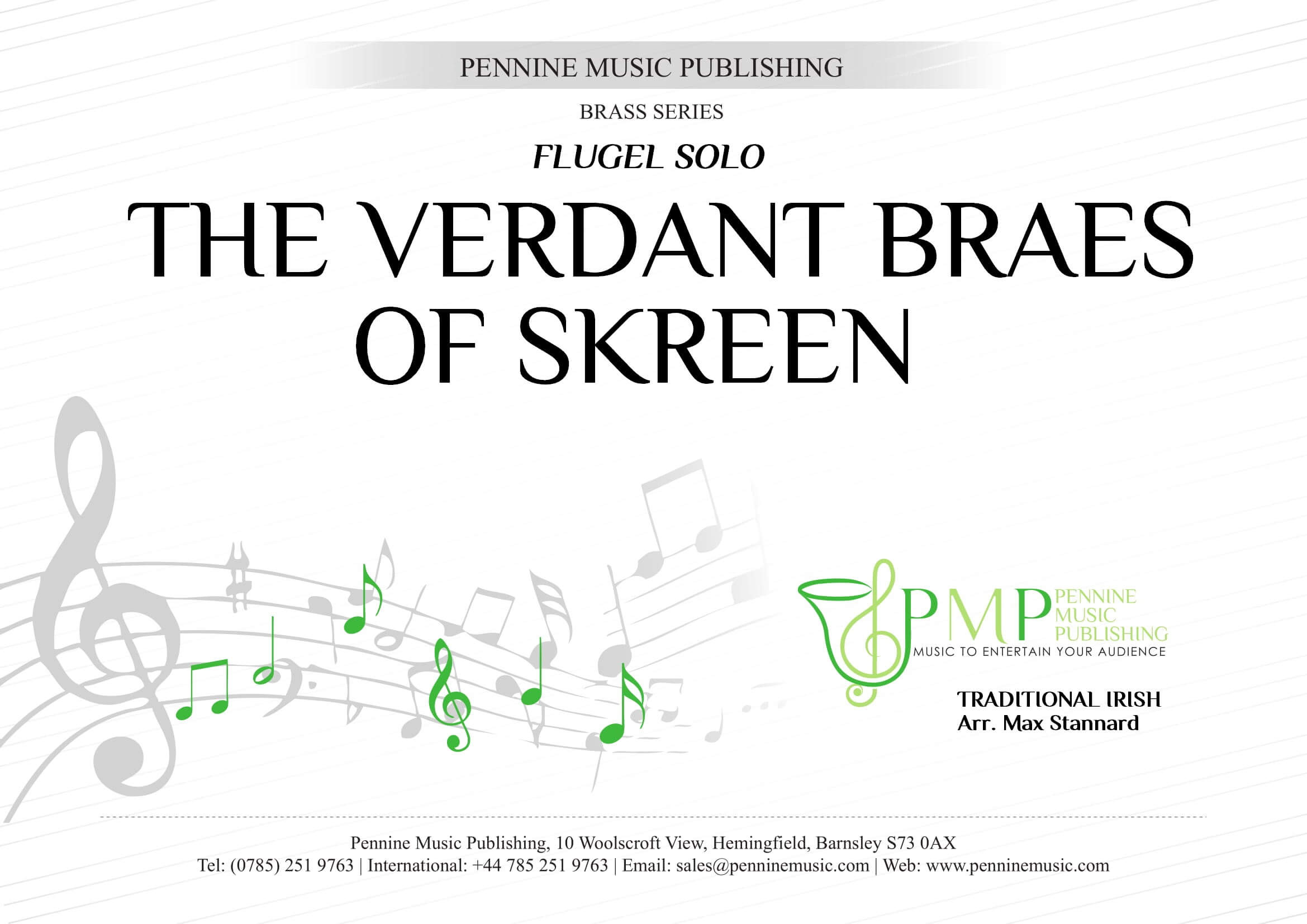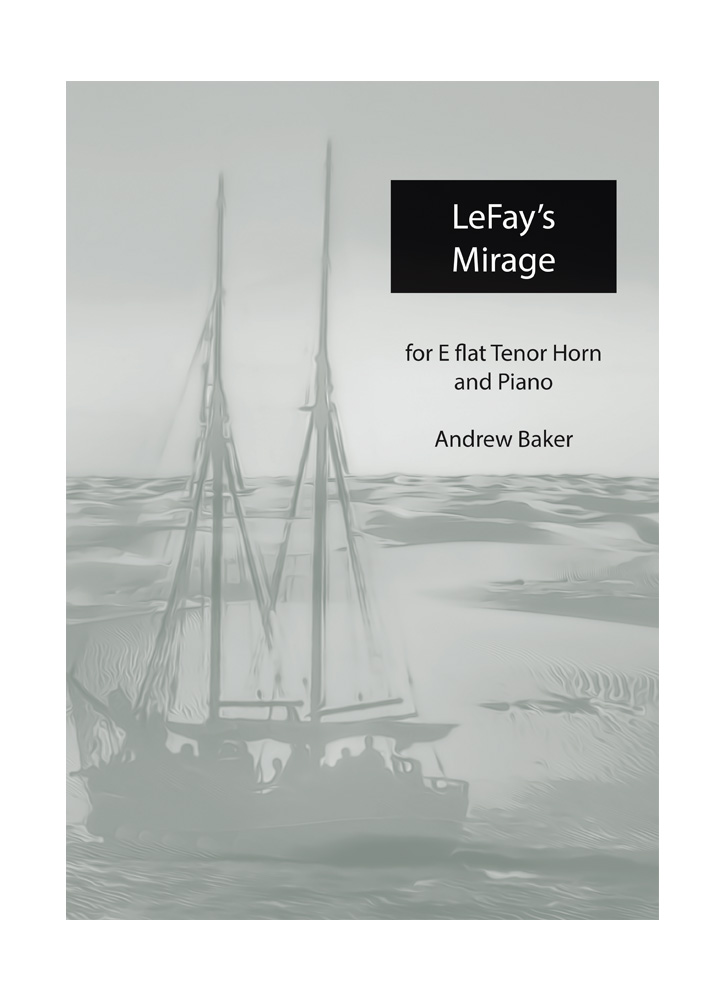Results
-
 £61.99
£61.99The Princess And The Frog (Almost There) - Randy Newman - Jan van Kraeydonck
Estimated dispatch 10-14 working days
-
 £24.50
£24.50Calon Lan - John Hughes - Rob Westacott
A new take on this this famous Welsh song is the perfect way to introduce your band to the concert stage. With stage directions, the band appears over the familiar 'Bolero' side drum rhythm one section at a time. Calon Lan has as in recent years become associated with the Welsh Rugby Union, being sung before almost every Test match involving the Welsh national team. This arrangement is accessible to Youth bands as well as senior bands and a lovely way to add something different to your concerts.
In stock: Estimated dispatch 1-3 days
-
 £29.50
£29.50I Left My Heart In San Francisco - Cross & Reed - Neville Buxton
This much loved ballad have been arranged as a Euphonium solo by Neville Buxton. Released by Tony Bennet, it became a gold-selling Top Ten hit that stayed in the charts almost three years. With intricate band parts and an unforgettable solo line, this arrangement will bring back the memories of the 60's to your concert audience.Free solo part available on request. Email - [email protected]
In stock: Estimated dispatch 1-3 days
-
 £24.50
£24.50The Verdant Braes Of Skreen - Traditional - Max Stannard
Ireland is renowned for having an almost endless list of folk tunes that have been passed down from generation to generation. Now, in a moving arrangement for the Flugel soloist, 'The Verdant Braes of Skreen' has been arranged by Max Stannard and is the perfect choice for bands and soloists looking to indulge in a little Irish culture. The title has been open to debate for some time, however it is believed that the 'Screen' refers to Ballinascreen in County Londonderry, Northern Ireland and a "Brae" is a steeped bank or a hillside. A lovely addition to any soloists repertoire.
In stock: Estimated dispatch 1-3 days
-
£24.50
Wedding Music (Selections For A Wedding) - Various - Gavin Somerset
With more and more brass bands performing at weddings, having the correct music is essential for the couple's perfect day. With most of the traditional wedding music coming from large overtures & operas etc, this unique pack of music has been specially designed to minimise fuss (all 4 pieces are printed on just one sheet per part) and have just the "famous" bits included. Specially arranged by Gavin Somerset so that the pieces included can be performed from anything ranging from a full brass band to a brass quintet group and with repeats that can be cut or performed to tailor to each event. The pieces areaABRIDAL CHORUS (from Lohengrin) By Richard Wagner"Here comes the bride"aA is the standard march played for the bride's entrance at many formal weddings. The wedding between Elsa and Lohengrin however was almost an immidiate failure!PACHELBEL'S CANON By Johann PachelbelFormally known as the Canon & Gigue in D and originally composed for a string quartet, the Canon part of the composition has become a favorite at weddings, either as an alternative to the Bridal Chorus (above) or used during the signing of the register. The convention in the Baroque era would have been to play a piece of this type in the moderate to fast tempo, however at weddings it has become fashionable to play the work at a slow tempo.WEDDING MARCH (from "A Midsummer Night's Dream") By Felix MendelsshonPopularized by Princess Victoria's wedding to Prince Frederick William of Prussia and coupled with the Bridal Chorus for the entry of the bride, this Wedding March is often for the recessional at the end. Prelude to "Te Deum" By Charpentier Another item now popular in its use during weddings for its bright fanfares. Many composers have written music to the "Te Deum" text (Te Deum being an early Christian hymn of praise, used still regularly in the R.C Church). The prelude by Charpentier is by far one of the most famous
In stock: Estimated dispatch 1-3 days
-

Euphoria | Chris Ellis
Opening with a slow minor-key melody, the theme develops tonally before the tom-toms herald a faster, more rhythmic section, developing into a toe-tapping jig-like tune, finally slowing back into the almost meditative motif mirroring the original passage. An original style to add variety to your band concerts. The Minor key adagio opening bars of this number has an uplifting 'choral like' orchestration with an almost 'what's coming next' undertone, with Euphoniums leading the way. The pace and feel changes totally at the Allegro with the tom toms taking the tempo up with a toe tapping jig like rhythm and a move to the Major Key. A clever contrast in the next section has the rhythmic triplet pattern played against a quaver melody, before full band join in with the dance quality of this section. The end section of Euphoria returns to the adagio with an uplifting and real sense of reaching a goal.Skill Level: Intermediate
-

I See the Fatherland | Dario Salvi
Dario Salvi has reconstructed Franz von Suppes operetta 'Die Afrikareise' (A Trip to Africa) in a ground breaking project with Winsconsin University and the Strauss Society, which will see the operetta being performed in English for the first time in 100 years. This march for Brass Band brings together themes from the operetta under the title 'I See the Fatherland'[su_quote cite="Dario Salvi 2015]After almost two years of work on the score of the Operetta, during which I extensively worked on preparing a full orchestral score with all the singing parts in English, it is almost time to stage the work. The music from 'A Trip To Africa' is full of amazing melodies and interesting ideas. This march for Brass Band is a collection of some of the themes from the Operetta: The "Entrance of Titania" Fanfare leads to one of the most recurring themes, where the singer declares their desire to go back to their Fatherland (in this case Naples) after their visit to the very exotic Cairo; the starting point of their adventure into the heart of the Desert. Exotic sounding yet very Viennese rhythms are the main characteristic of this march. [/su_quote] Instrumentation: Soprano, Solo, 2nd and 3rd Cornets Flugelhorn Solo, 1st and 2nd Tenor Horns 1st and 2nd Baritone 1st, 2nd and Bass Trombones Euphonium Eb and Bb Basses Percussion: 1. Snare Drum 2. Bass Drum, Cymbal, Triangle
-
 £12.00
£12.00LeFay's Mirage
DescriptionThe "mirage" of the title refers to an optical effect called a fata morgana, often seen in a narrow band right above the horizon. It is an Italian term named after the Arthurian sorceress Morgan le Fay, from a belief that these mirages were fairy castles in the air or false land created by her witchcraft to lure sailors to their deaths.Fata Morgana mirages significantly distort the object or objects on which they are based, often such that the object is completely unrecognizable. A Fata Morgana may be seen on land or at sea, in polar regions, or in deserts. It may involve almost any kind of distant object, including boats, islands, and the coastline.Music often performs the same tricks - the original material is inverted, reflected and changed until it becomes something almost entirely new. This work is in two main sections, slow and fast, separated by a virtuoso cadenza with the material in the second part being a distorted reflection of that in the first. As befits a work commissioned to show off a soloist's range and ability, the work is highly challenging technically and covers the full range of the tenor horn.Where the sustain pedal is required by the music, this is indicated in the piano part; pedalling elsewhere is at the player's discretion.
Estimated dispatch 7-14 working days
-
 £74.95
£74.95Eden (Score and Parts)
This work was commissioned by the Brass Band Heritage Trust as the test piece for the final of the 2005 Besson National Brass Band Championship, held at the Royal Albert Hall, London.The score is prefaced by the final lines from Milton's epic poem Paradise Lost (completed in 1663), in which Adam and Eve, expelled from Paradise, make their uncertain way into the outside world:"...The world was all before them, where to chooseTheir place of rest, and providence their guide:They hand in hand with wandering steps and slow,Through Eden took their solitary way."My work is in three linked sections. In the first, the characters of Adam, Eve and the serpent guarding the Tree of Knowledge are respectively represented by solo euphonium, cornet and trombone. The music opens in an idyllic and tranquil mood and leads into a duet between euphonium and cornet. Throughout this passage the prevailing mood darkens, though the soloists seem to remain oblivious to the increasingly fraught atmosphere. A whip-crack announces the malevolent appearance of the solo trombone who proceeds to engage the solo cornet in a sinister dialogue.The second section interprets the Eden story as a modern metaphor for the havoc mankind has inflicted upon the world, exploiting and abusing its resources in the pursuit of wealth. Though certainly intended here as a comment on the present-day, it is by no means a new idea: Milton himself had an almost prescient awareness of it in Book I of his poem, where men, led on by Mammon:"...Ransacked the centre and with impious handsRifled the bowels of their mother earthFor treasures better hid. Soon had his crewOpened into the hill a spacious woundAnd digged out ribs of gold."So this section is fast and violent, at times almost manic in its destructive energy. At length a furious climax subsides and a tolling bell ushers in the third and final section.This final part is slow, beginning with an intense lament featuring solos for tenor-horn, flgel-horn and repiano cornet and joined later by solo baritone, soprano cornet, Eb-bass and Bb-bass.At one stage in the planning of the work it seemed likely that the music would end here - in despair. Then, mid-way through writing it, I visited the extraordinary Eden Project in Cornwall. Here, in a disused quarry - a huge man-made wound in the earth - immense biomes, containing an abundance of plant species from every region of the globe, together with an inspirational education programme, perhaps offer a small ray of hope for the future. This is the image behind the work's conclusion and the optimism it aims to express is real enough, though it is hard-won and challenged to the last.John Pickard 2005
Estimated dispatch 7-14 working days
-
 £29.50
£29.50Eden (Score Only)
This work was commissioned by the Brass Band Heritage Trust as the test piece for the final of the 2005 Besson National Brass Band Championship, held at the Royal Albert Hall, London.The score is prefaced by the final lines from Milton's epic poem Paradise Lost (completed in 1663), in which Adam and Eve, expelled from Paradise, make their uncertain way into the outside world:"...The world was all before them, where to chooseTheir place of rest, and providence their guide:They hand in hand with wandering steps and slow,Through Eden took their solitary way."My work is in three linked sections. In the first, the characters of Adam, Eve and the serpent guarding the Tree of Knowledge are respectively represented by solo euphonium, cornet and trombone. The music opens in an idyllic and tranquil mood and leads into a duet between euphonium and cornet. Throughout this passage the prevailing mood darkens, though the soloists seem to remain oblivious to the increasingly fraught atmosphere. A whip-crack announces the malevolent appearance of the solo trombone who proceeds to engage the solo cornet in a sinister dialogue.The second section interprets the Eden story as a modern metaphor for the havoc mankind has inflicted upon the world, exploiting and abusing its resources in the pursuit of wealth. Though certainly intended here as a comment on the present-day, it is by no means a new idea: Milton himself had an almost prescient awareness of it in Book I of his poem, where men, led on by Mammon:"...Ransacked the centre and with impious handsRifled the bowels of their mother earthFor treasures better hid. Soon had his crewOpened into the hill a spacious woundAnd digged out ribs of gold."So this section is fast and violent, at times almost manic in its destructive energy. At length a furious climax subsides and a tolling bell ushers in the third and final section.This final part is slow, beginning with an intense lament featuring solos for tenor-horn, flgel-horn and repiano cornet and joined later by solo baritone, soprano cornet, Eb-bass and Bb-bass.At one stage in the planning of the work it seemed likely that the music would end here - in despair. Then, mid-way through writing it, I visited the extraordinary Eden Project in Cornwall. Here, in a disused quarry - a huge man-made wound in the earth - immense biomes, containing an abundance of plant species from every region of the globe, together with an inspirational education programme, perhaps offer a small ray of hope for the future. This is the image behind the work's conclusion and the optimism it aims to express is real enough, though it is hard-won and challenged to the last.John Pickard 2005
Estimated dispatch 7-14 working days
